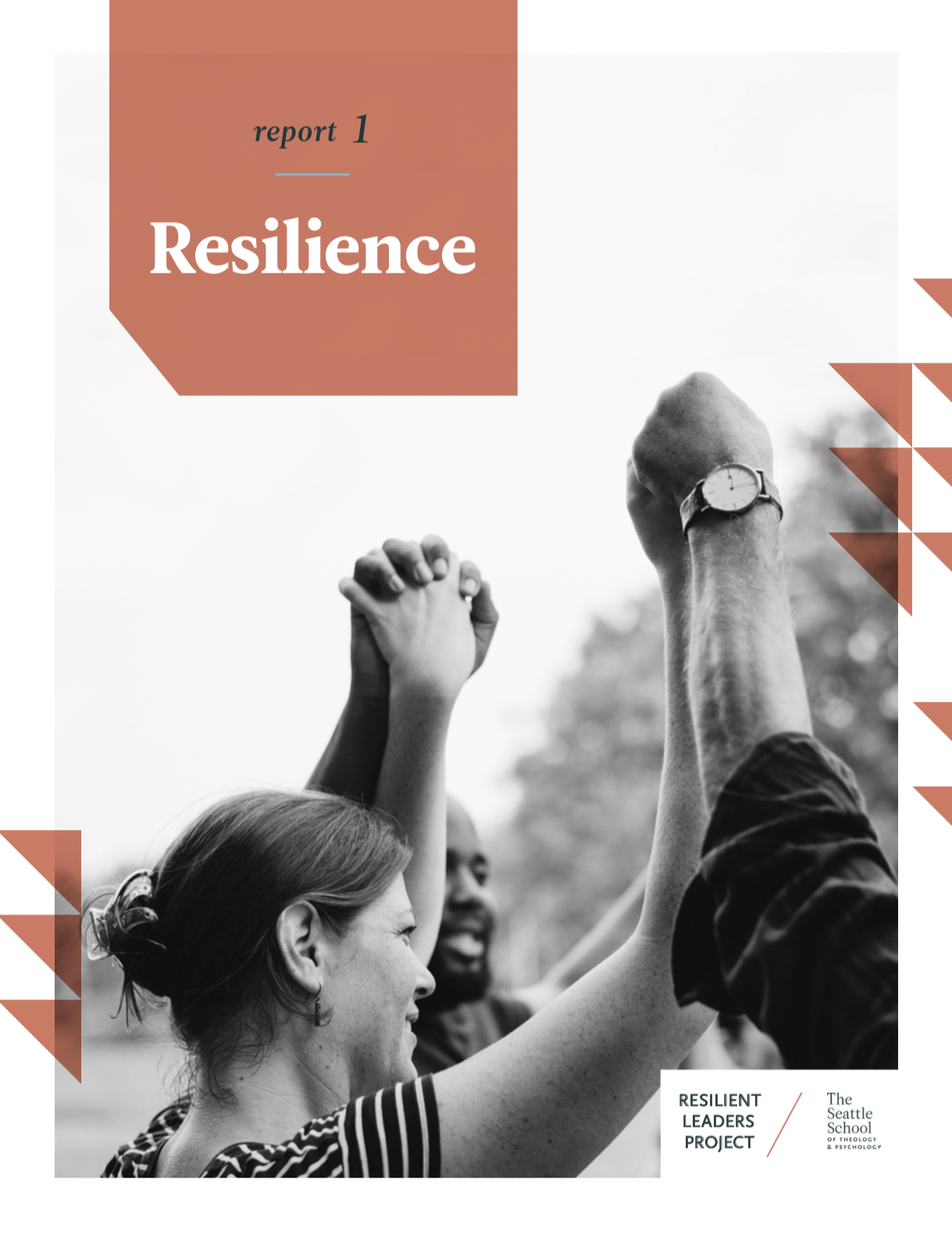The report is presented by Kate Davis, Director of Resilient Leaders Project, Dr. J. Derek McNeil, Acting President, and Andrea Sielaff, Researcher.
The world needs resilient leaders.
The church is in a season of significant transition; no one knows how spiritual communities will gather a decade from now. As a result, the role of pastor holds more ambiguity and strain, and leadership requires additional strengths and skills.
Leaders today must be discerning, responsive, and flexible in order to be able to wisely and creatively face an unknown future. In short: leaders must be resilient.
We set out to make this report to outline what resilience actually is and to begin a discussion on its theological and practical implications for Christian leaders. Our big-picture aim is to support leaders who are seeking to be able to care for their community better through caring for themselves.
Most pastors know themselves to be leaders. Many leaders understand themselves pastorally, whether they work in churches, nonprofits, businesses, or as artists. Because of these interactions, we understand the role of pastor broadly, though not loosely.
Throughout this report, we use the terms pastor and leader interchangeably, recognizing the leadership of pastors and the pastoral heart of many leaders.
Who is the Resilience Report for?
The people we hope read this report include: Pastoral leaders who desire to have a sense of good life while doing good work. Supervisors and mentors: the bishops, presbyters, managers who cultivate and support leaders. Institutions and helpers who are hoping to aid leaders.
This report includes individual leaders’ stories, findings of our recent Resilience for Sustainable Leadership survey, and a theology of resilience — all situated in the context of this moment in the development of the church.
As we continue to develop and implement the Resilient Leaders Project, The Center for Transforming Engagement will utilize these findings to inform the project’s vision, goals, and strategy. We look forward to continuing the conversation with you!
Download: The Resilience Report
 This report includes statistics and insights about the current struggles faced by churches and leaders, an overview of the intensive research conducted by the RLP team, and a thematic summary of the findings so far.
This report includes statistics and insights about the current struggles faced by churches and leaders, an overview of the intensive research conducted by the RLP team, and a thematic summary of the findings so far.
Our hope in sharing the research and findings is to offer practical resilience strategies that can be integrated into the holy mundane of leaders’ daily lives—and to reinforce the urgent need for such strategies.
The Resilience Report is a 25-page document intended to outline what resilience actually is and what it might look like in practice, and to begin a discussion on its theological and practical implications for Christian leaders.
